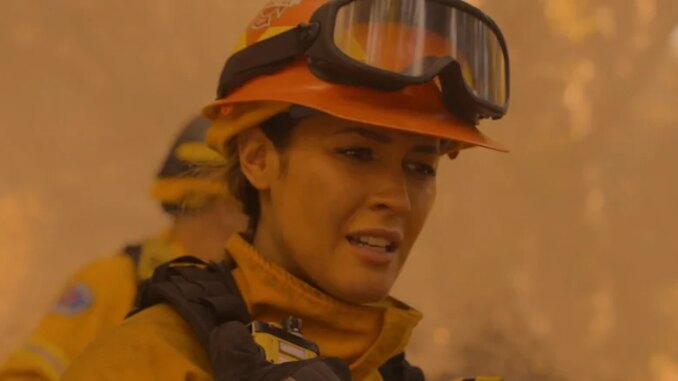
The Ashes of "Station 19": More Than Just Low Ratings
"Station 19," the firefighting drama spun off from the powerhouse "Grey's Anatomy," was a reliable ABC staple for six seasons, bringing viewers into the lives and dangers faced by Seattle's Station 19. So, when the axe finally fell, prompting the announcement of its seventh and final season, the question on everyone's lips was: why? While conventional wisdom points to declining ratings, the real reasons behind ABC's decision to cancel "Station 19" are a complex tapestry woven with financial considerations, evolving creative priorities, and the shifting landscape of network television itself.
The most obvious, and often cited, culprit is indeed the ratings dip. While "Station 19" never achieved the stratospheric numbers of its parent show, it initially held its own, benefiting from crossover events and a dedicated fanbase. However, as seasons progressed, viewership gradually eroded. The reasons for this decline are multi-faceted. The show's reliance on melodramatic storylines, mirroring the sometimes-ludicrous scenarios of "Grey's Anatomy," likely alienated viewers seeking a more grounded, realistic portrayal of firefighting. Explosions of drama, while exciting in the short term, ultimately diluted the authenticity of the characters and their profession.
However, focusing solely on the ratings ignores a more significant factor: money. "Station 19," as a long-running drama, had undoubtedly become more expensive to produce. Salaries for established actors rise, production costs inflate, and the show requires consistent investment in special effects to maintain its signature pyrotechnics. In an era of streaming dominance and cord-cutting, networks are under immense pressure to optimize their budgets. Replacing a seasoned, costly show like "Station 19" with a potentially cheaper, newer project allows ABC to refresh its lineup and potentially attract a wider audience, or at least do so for less money.
Furthermore, the creative direction of "Station 19" may have played a role in its demise. The show struggled to consistently carve out its own identity, often overshadowed by "Grey's Anatomy." While the crossover events initially boosted viewership, they also fostered a sense of dependence, preventing "Station 19" from truly standing on its own. The constant intertwining of storylines and characters made it difficult for the show to develop its own unique voice and attract viewers solely on its own merits. This lack of distinct identity likely contributed to the fading interest among some viewers.
Beyond the specific factors surrounding "Station 19," the cancellation also reflects a broader trend within the television industry. Network television is no longer the dominant force it once was. Streaming services offer a vast array of content, often at lower monthly costs, and are aggressively investing in original programming. As a result, traditional networks are forced to adapt, focusing on fewer, higher-impact shows that can generate significant revenue through advertising and streaming rights. "Station 19," while a solid performer, likely fell short of the revenue benchmarks required to justify its continued existence in this increasingly competitive landscape.
In conclusion, while declining ratings certainly contributed to the cancellation of "Station 19," the full picture is far more nuanced. Financial considerations, creative limitations, and the shifting dynamics of the television industry all played a role in the decision. The ashes of "Station 19" represent more than just a failed show; they symbolize the challenges and transformations facing network television in the age of streaming. While fans may mourn the loss of their favorite firefighters, the cancellation serves as a stark reminder that even reliable staples can succumb to the complex pressures of the modern entertainment landscape.